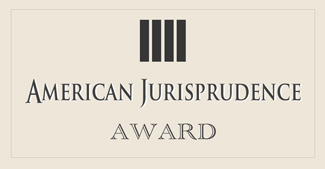Assault Defense Lawyer in Utah
A Solution Begins Here
Have you been charged with a crime in Utah? You might have been defending yourself, or maybe your temper simply got the best of you. Regardless, facing assault charges can lead to severe and life-altering consequences if you’re convicted. Besides extended jail time, assault charges can follow you longer than other violent crime convictions because they take so long to expunge from your record. They can also result in the loss of a gun license and alter custody arrangements.
There are different levels of assault in the state of Utah with a variety of consequences attached to them. None of them are easy to tackle alone. Wasatch Defense Attorneys boasts the highest levels of personal attention and support. With our expertise and aggressive defense, you can rest assured that your case is in the right hands.
Different Levels of Assault Charges in Utah
Assault charges range from a Class B misdemeanor to a second-degree felony. Depending on the circumstances of the assault and on its results, a person convicted of assault could spend up to 15 years in prison.
Assault is typically considered a Class B misdemeanor, punishable by up to $1,000 in fines and up to 6 months in jail. However, it can be classified as a Class A misdemeanor if the victim is pregnant or if the act causes substantial bodily injury to the victim. A Class A misdemeanor carries up to one year in jail and $2,500 in fines.
You can also face multiple counts of assault depending on the situation when you were arrested for the charge. For example, let’s say you got into a bar fight with three different people. You would then face three separate counts of assault. You only got into one fight, but it’s compounded due to the number of people involved. This means you could be facing up to 3 years in prison versus just the original 1 you would have faced with a normal Class A misdemeanor.
Aggravated Assault Charges in Utah
Aggravated assault is any assault that includes the use of a dangerous weapon. According to assault law, a dangerous weapon is any item that can cause death or serious bodily injury. Typically, aggravated assault is a second-degree felony that carries a prison sentence of 1-15 years and up to $10,000 in fines. If you are facing charges of aggravated assault, you could also be facing the additional charge of carrying a dangerous weapon with the intent to cause harm or to display it in a threatening manner. When your charges are compounded, it increases your potential jail time and any additional fines you might have to pay.(Utah Code §§ 76-1-601, 76-5-103)
Assault against school employees (76-5-102.3)
Someone who commits an assault, under Utah Code 76-5-102, or makes a threat of violence, under 76-5-107 against a public or private school employee or volunteer is guilty of a crime. The act is a crime if the assailant knows that the individual is acting within the mandate for his role at the school. In such a case, the offense is a class A misdemeanor. See the assault penalty under the various applications of the Utah state criminal code, below:
Assault against a peace officer or military service member in uniform (76-5-102.4)
It is a crime to commit an assault or make a threat of violence against a military member, including a National Guard member, or a state, local, or federal law enforcement officer, correctional officer, or special function officer.
- The crime is a class A misdemeanor (with certain exceptions) if the perpetrator knows that the uniformed person is acting within the mandate for his or her designated role.
- The crime is classed as a third-degree felony if the guilty person has a prior conviction for either a class A misdemeanor or a felony violation of the law under this section. Or, if he or she inflicted a significant injury on the victim, the felony charge applies.
- The crime is a second-degree felony if the perpetrator uses a dangerous weapon (Utah 76-1-601) or another approach that is likely to kill or severely injure the victim.
PENALTY: If convicted on assault charges for one of the above offenses, a sentence to time in jail or another correctional institution is imposed. The term is at least 90 days for the second offense, 180 days for the third, and each repeat offense after that.
Assault by a prisoner (76-5-102.5)
A prisoner is guilty of assault if he or she commits an act of violence with the intent to inflict bodily injury. The crime is a third-degree felony.
Propelling object or substance at a correctional or peace officer (76-5-102.6)
Under Utah 77-7-15, it is a crime if a prisoner or detained person propels any substance or object at a police officer, correctional officer, institutional employee, or volunteer. (There are certain exceptions under subsection 3.) The offense is a class A misdemeanor. Or, it is a third-degree felony if:
- The substance or object causes significant bodily injury to the officer, or
- The substance is urine, blood, fecal matter, vomit, or infectious matter (Utah 26-6-2), something carrying vomit or
infectious matter, or the perpetrator’s saliva, and - The actor knows he/she has hepatitis B or C, or HIV, and
- The substance contacts the eyes, mouth, part of the face of the officer or worker, or an open wound on that person.
PENALTY: A person may be subject to greater punishment for a crime committed under this provision of Utah law than under another section of the law. In such cases, prosecution and sentencing for the more severe offense may occur.
Assault against health care provider and emergency medical service worker (76-5-102.7)
It is a class A misdemeanor if a person assaults or threatens violence against someone he/she knows is an emergency medical service worker or health care provider. This law applies if the actor is not a prisoner or detainee (77-7-15) and the victim is engaged in emergency duties that are within his/her mandate when the assault occurs.
PENALTY: The perpetrator has committed a third-degree felony if he/she intentionally or knowingly causes significant bodily injury (76-1-601).
Disarming a peace officer (76-5-102.8)
A person breaks the law under Utah Code Section 3 if he/she intentionally attempts to remove or take a firearm or conductive energy device from someone he/she knows is a police officer. The same crime is committed if the person takes the firearm or device from the officer’s immediate presence, without the officer’s permission when the officer is engaged in activity within the mandate of his/her role.
Conductive energy device: a device designed to use an electrical current to impact someone’s control of their muscles.
PENALTY: A firearm violation under subsection 2 is a first-degree felony. A violation of subsection 2 involving a conductive energy device is a third-degree felony.
Propelling a bodily substance (76-5-102.9)
If someone propels any of the substances as described above in Utah Code 76-5-102.6 at any person, he/she has committed a class B misdemeanor (with certain exceptions in subsection 3). An offense under this section of the Utah Code is a class A misdemeanor.
PENALTY: If this section and another section of Utah law provide for prosecution and sentencing for a particular offense, the defendant may be prosecuted and sentenced under the section of the law calling for the more serious penalties.
Conviction of a crime described in Utah Code 76-5-102, as explained above, can result in jail time and a permanent criminal record. That can damage your ability to get a job in your field, rent a house, etc. It can severely affect your future if you are convicted of a second or third offense. If you are charged with assault, you need to work with an experienced assault defense attorney in Salt Lake City, Utah, to protect your rights and build the strongest case possible for your defense.
Frequently Asked Questions for Assault Defense Lawyer in Utah
What Are the Different Types of Assault?
In Utah, there are several offenses that constitute assault including:
- Assault against school employees
- Assault against a peace officer or a military service member in uniform
- Assault by prisoner
- Propelling object or substance at a correctional or peace officer
- Assault against health care provider and emergency medical service worker
- Disarming a peace officer
- Propelling a bodily substance
- Aggravated assault
- Aggravated assault by a prisoner
- A consensual altercation, i.e., dueling
- Mayhem
- Harassment
- Stalking
- Threat of violence
- Threat of terrorism
- Child abuse and child abandonment
- Commission of domestic abuse in the presence of a child
- Abuse or neglect of a child with a disability
- Abuse, neglect, or exploitation of a vulnerable adult
- Reckless endangerment
- Endangerment of a child or vulnerable adult
- Surreptitious administration of certain substances
What Should I Do If I’m facing a Criminal Assault Charge?
How Can a Criminal Defense Lawyer Help Me?
What is Domestic Assault?
Is an Arrest Mandatory When Police are called for Assault?
What’s the Difference between Criminal Assault vs. Civil Assault?
Do I Need a Lawyer for an Assault Charge?
What Will a Defense Lawyer Do to Defend Me?
A defense lawyer will engage in and thoroughly examine every aspect of your case. This includes all legal documents, allegations, and evidence, as well as your legal rights. Your defense attorney will represent you on behalf of the Commonwealth and provide you with all opportunities available to you. Most importantly, a defense lawyer will prepare your case in full without issue saving you time and effort on ensuring yourself a fair trial.
Utah Assault Defense Attorney in Salt Lake City
If you or anyone you love is facing criminal assault charges, you need an experienced attorney who knows the criminal law in Utah and will defend your rights. At Wasatch Defense Attorneys, our highly qualified representatives will support you and defend your quality of life. Our experienced, responsive attorneys can ensure speedy resolutions and help you avoid incarceration.
Call an Assault Attorney in Utah Who Will Aggressively Defend You – Wasatch Defense Attorneys: (801) 980-9965.
Guard Your Rights
Do NOT Waive Your Right to Legal Counsel! Authorities will try get you to incriminate yourself and suggest there is no need for an attorney. Stay calm and call us immediately: 801.980.9965
Experience You Can Trust
We have represented thousands of clients, with countless difficulties and challenges, for more than 100 years. Less than 1% of our clients have ever been incarcerated.
Compassionate & Aggressive
Whether you have a family, financial, or criminal matter – our ethical, caring attorneys listen to YOU and use their expertise and a strong, hands-on approach to get you the best result.




